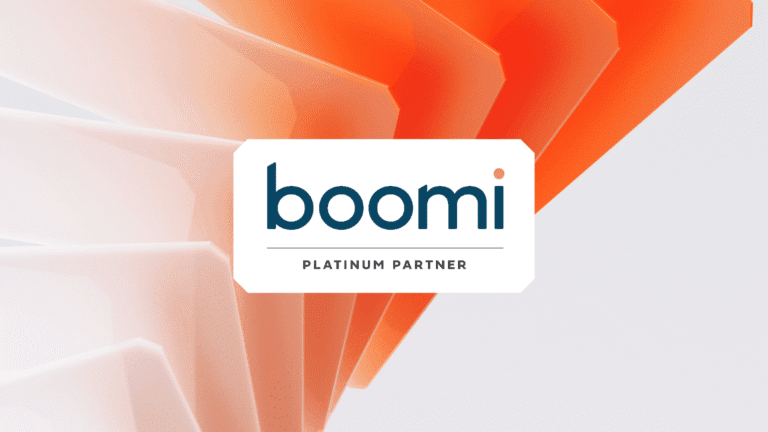- Services
Technology Capabilities
Technology Capabilities- Product Strategy & Experience DesignDefine software-driven value chains, create purposeful interactions, and develop new segments and offerings.
- Digital Business TransformationAdvance your digital transformation journey.
- Intelligence EngineeringLeverage data and AI to transform products, operations, and outcomes.
- Software Product EngineeringCreate high-value products faster with AI-powered and human-driven engineering.
- Technology ModernizationTackle technology modernization with approaches that reduce risk and maximize impact.
- Embedded Engineering & IT/OT TransformationDevelop embedded software and hardware. Build IoT and IT/OT solutions.
- Industries
- GlobalLogic VelocityAI
- Insights
BlogsFebruary 12, 2026Ihor TolkushynThe 6G Revolution: Architecting the Internet of Everything
As 5G continues its global rollout, the telecommunications industry is already looking ...
 Case StudiesGlobalLogic
Case StudiesGlobalLogicHow Agentic AI Accelerated Investment Decisions for a Global Firm
For one of the world’s largest investment firms, decisions move at the speed of insight.

- About Us
RecognitionsGlobalLogicFebruary 2, 2026GlobalLogic Achieves Platinum Partner Status with Boomi
GlobalLogic is now a Boomi Platinum Partner! See how our global scale, Boomi Lab expert...
 Press ReleaseGlobalLogicJanuary 29, 2026
Press ReleaseGlobalLogicJanuary 29, 2026Hitachi Announces Plans to Integrate GlobalLogic and Hitachi ...
Hitachi, Ltd. has announced its intent to integrate its U.S. subsidiaries, GlobalLogic ...

- Careers
Published on August 22, 2025Powering Up with Purpose: Responsible AI in Grid Modernization
View all articles ShanShan PaHead of the AI & Data GovernanceShareRelated Content
ShanShan PaHead of the AI & Data GovernanceShareRelated Content Ihor Tolkushyn12 February 2026
Ihor Tolkushyn12 February 2026 GlobalLogic3 December 2025View All Insights
GlobalLogic3 December 2025View All Insights GlobalLogic25 November 2025Recommended authorsSenior Manager, EngineeringDirector, Industrial BU GSPView all authorsSenior Vice President & Head of EMEA
GlobalLogic25 November 2025Recommended authorsSenior Manager, EngineeringDirector, Industrial BU GSPView all authorsSenior Vice President & Head of EMEALet's start engineering impact together
GlobalLogic provides unique experience and expertise at the intersection of data, design, and engineering.
Get in touchAI GovernanceCybersecurityData EngineeringIT/OT TransformationIndustrial and EnergyMobilityExecutive Summary
Artificial intelligence is increasingly transforming the energy sector, making it smarter, more data-driven, and focused on customers. AI technologies deliver benefits across various domains, including grid management and optimization, predictive maintenance, knowledge management, and energy trading. On top of that, AI helps shorten the distance between the energy provider and its customers. Through chatbots and virtual assistants, AI is managing customer inquiries, offering tailored energy-saving advice, and helping customers interpret their energy usage. While AI provides benefits, it also presents challenges concerning data accuracy, privacy, security, bias, and transparency.
As the energy sector navigates unprecedented challenges from climate change to rising demand, the adoption of AI in grid modernization is not merely a technological upgrade—it’s a purposeful strategy that is rooted in building a more resilient, sustainable, efficient, equitable, and secure energy future for everyone.
We have walked this path alongside leading organizations, leveraging our expertise to harness these transformative opportunities while mitigating inherent risks. In this whitepaper, we share our recommendations and insights, highlighting why strong AI governance is paramount to managing risks, ensuring ethical deployment, and successfully balancing innovation with oversight.

Challenges and Opportunities
According to market research, the global use of AI in the energy market is projected to grow from $8.91 billion in 2024 to $58.66 billion by 2030, reflecting a CAGR of 36.9%. The water utility segment alone is expected to experience a 35% growth in generative AI adoption in 2024.
The Critical Infrastructure
With the rapid development of technology, the first challenge is the aging of infrastructure. This is particularly critical in sectors like the energy sector, itself a critical infrastructure, whose well-being impacts the economy, national security, and national public health. Not only that, the energy sector also enables the function of many other critical industries, such as:
- Healthcare facilities that operate hospitals, clinics, and life support systems,
- Communications networks that support our daily internet, phone lines, and emergency services,
- Transportation systems
- Water and wastewater treatment plants that pump or purify water,
- Financial services, and
- Other government services, such as emergency response.
Many legacy systems that are still in use to support the energy infrastructure were designed and built decades ago. The maintenance and operation of aging infrastructure can be increasingly costly and inefficient. Addressing this challenge requires a strategic approach that considers both the modernization of existing infrastructure and the development of new infrastructure. Predictive maintenance is a solution that uses AI algorithms to analyze sensor data from power plants such as thermal, hydroelectric plants, nuclear, wind, or solar, to predict equipment failures (e.g., powerlines, generators, transformers) before they happen. This shifts maintenance activities from reactive to proactive, reducing costly unplanned outages, minimizing downtime, and extending the lifespan of critical assets.
The effectiveness of AI models for predictive maintenance hinges on the quality of their training data. Poor data governance throughout collection, cleansing, and validation can result in models trained on flawed data (incomplete, inaccurate, inconsistent, or biased). This can lead to:
- False positives: Incorrectly predicting failures, resulting in unnecessary maintenance costs and downtime.
- False negatives: Failing to predict actual failures, leading to unexpected equipment breakdowns, safety hazards, lost production, and potential major damage.
- Bias amplification: Reliance on historical maintenance records with disproportionate focus on certain equipment or locations can be magnified by AI, causing unfair resource distribution and neglecting critical needs in other areas.
Robust data governance is crucial for the reliability and fairness of predictive maintenance AI models.
GlobalLogic’s Impact on Predictive Maintenance
GlobalLogic’s Intelligence Engineering services leverage Predictive Analytics and Data Engineering to enable true predictive maintenance, by using AI algorithms and sensor data for proactive equipment failure prediction. We address risks like poor data governance and bias through our AI Governance, ensuring data cleansing, validation, and ethical AI guidelines for consistent, accurate performance.
Energy Efficiency and Conservation
AI-powered Building Management Systems (BMS) optimize HVAC, lighting, and other energy-consuming systems based on occupancy, external weather, and predicted usage patterns to significantly reduce energy consumption. These sophisticated systems utilize real-time data from various sensors and sources, including occupancy sensors, external weather stations, and historical energy consumption patterns, to dynamically optimize building operations. By continuously analyzing this information and leveraging predictive algorithms, these systems can anticipate energy demands and proactively adjust settings to minimize waste.
For instance, when you are on vacation, lighting and HVAC systems are automatically lowered or turned off, at the same time, adjustments can be made in anticipation of changing weather conditions, even in the coldest winter, to pre-cool or pre-heat spaces more efficiently. AI-powered systems learn from past usage patterns, allowing them to fine-tune their control strategies over time and further enhance energy savings. Not only reduces energy consumption and lower operational costs, but it also contributes to a more sustainable and comfortable indoor environment.
For a smart system like this, cybersecurity vulnerability is the number one risk. Because AI-powered BMS is highly interconnected with sensors, actuators, and central control, a security breach could allow attackers to manipulate environmental controls, compromise occupant safety (e.g., locking doors, disrupting fire alarms), or use the building network as a launchpad for broader attacks. Critical data about building occupancy and operations could be exfiltrated. Bias can also manifest when AI struggles to detect diverse groups, which could lead to less attention to certain areas for specific occupants, such as:
- Prioritizing Certain Occupancy Patterns: The AI system might be trained to optimize energy usage for typical working hours, neglecting the needs of occupants during non-peak hours (e.g. nightshift workers, weekend hours for office buildings).
- Favoring Certain Systems or Strategies: The AI system might be biased towards a specific type of HVAC system or certain energy-saving strategies, even if other options are more suitable for the building.
- Ignoring Sensor Data from Certain Areas: The AI system might not properly interpret or utilize data from certain sensors, leading to inaccurate or incomplete views of building conditions.
BMS collects vast amounts of data on occupant movement patterns, energy usage, and potentially even personal preferences if integrated with personal devices and all kinds of IoT. This data is sensitive and could be misused if not properly protected.
To combat this threat, robust cybersecurity measures should be put in place to achieve a multi-layered defense:
- Network Security: Segment the BMS network from other IT networks.
- Zero Trust Architecture: Require verification for all devices and users accessing the BMS.
- Access Control: Employ strong authentication, including multi-factor authentication (MFA), and the principle of least privilege for all users and automated processes.
- Data Minimization & Anonymization: Collect only essential data for optimization; anonymize or aggregate sensitive information like occupancy patterns.
- Communication Security: Encrypt all data transmitted between sensors, controllers, and the central AI system.
- AI Model Security: Implement specific defenses, such as Red-teaming, to protect against adversarial attacks and data poisoning targeting AI models.
- Privacy-by-Design & Consent: Embed privacy measures from the outset, including secure storage and encryption, and obtain informed consent for data collection.
Throughout the AI development lifecycle, substantive tests of AI behavior should be performed in simulated environments, including failure and emergency scenarios, before deployment. Follow the best practices of the industry and implement changes to AI gradually. Continuously monitor performance and occupant feedback to ensure stability.
GlobalLogic’s Impact on Energy Efficiency
GlobalLogic enables AI-powered Building Management Systems through its Intelligence Engineering for AI and data capabilities, complemented by Embedded Engineering & IT/OT Transformation services for integration with building systems. We address cybersecurity vulnerabilities, bias, and data privacy risks with comprehensive Cybersecurity services (including Security for AI and AI for Security) and robust AI Governance. These capabilities ensure data anonymization, encryption, consent management, and responsible AI practices for privacy and safety.
Customer Engagement
AI-driven chatbots and virtual assistants can enhance energy customer service through several functions: answering inquiries, providing personalized energy-saving tips, and explaining usage patterns. These intelligent assistants can also handle billing inquiries, outage updates, analyze energy consumption, and offer multilingual support.
In the energy sector, the relationship between utility and customer is one of profound reliance. This inherent dependency makes the risk of misinformation and critical data inaccuracies from AI chatbots exceptionally dangerous. When customers are searching for information about a power outage during a severe storm, or trying to understand a complex bill that impacts their finances, inaccurate or ‘hallucinated’ responses are not merely inconvenient; they can lead to safety hazards, financial hardship, and a decrease of trust in a service that is, by its very nature, indispensable.
Guardrails can be put in place to mitigate these risks. Robust systems can be implemented to ensure all information provided by the chatbot, especially concerning outages, billing, account status, and safety advisories, is always accurate, real-time, and sourced directly from authoritative internal systems.
When dealing with humans, involve humans. Establish clear workflows for human review and approval of any new or updated critical information before the chatbot can disseminate it. Program the chatbot to recognize high-stakes keywords (e.g., “outage,” “leak,” “emergency,” “bill error”) and, for these, trigger a disclaimer about AI-generated information, confirm it with authoritative sources, and provide a quick path to a human support agent.
GlobalLogic’s Impact on Customer Engagement
GlobalLogic leverages GenAI Services and Intelligence Engineering to enable AI-driven chatbots and virtual assistants. Examples include Content Engineering with human-in-the-loop processes and Knowledge Management for smart search. We address risks like misinformation, data inaccuracies, and privacy concerns by emphasizing Responsible and Reliable AI within our Enterprise-Grade AI framework. Our Content Engineering incorporates human review for critical information, and AI Governance capabilities help manage, protect, and optimize information.
Optimization of CCS Processes
Artificial intelligence models offer sophisticated capabilities for enhancing carbon capture and storage (CCS) within the energy sector. These models can analyze vast datasets to optimize many operational parameters within carbon capture plants, leading to increased efficiency and reduced energy consumption. Research shows how AI’s machine learning capabilities, using data from well logs and seismic readings, are applied to predict essential geological characteristics like porosity and permeability, directly informing the selection of CO2 storage locations.
The application of AI in CCS promises to accelerate the deployment and improve the reliability of this critical technology for mitigating greenhouse gas emissions and accelerating efforts to combat climate change.
The stakes for AI in CCS optimization are incredibly high. Even a small error can result in millions of tons of uncaptured CO2 or a major environmental release from a storage site. Controls should be put in place to counteract the risk. Human-in-the-Loop (HITL) and Explainable AI (XAI) are crucial, ensuring human experts retain ultimate control to review, validate, and override AI recommendations. Transparent AI models that can explain their reasoning and are rigorously tested in simulations must be prioritized.
Strict controls over data quality for both capture plants and geological surveys must be implemented. Humans should be continually auditing and mitigating data biases that could lead to flawed optimizations or inaccurate site risk assessments, thus maintaining strong data security.
Finally, continuous monitoring and evaluating AI performance in real-world operations and geological predictions are essential. Implementing feedback loops where real-world data refines AI models, and ensuring that AI adapts to changing conditions and new knowledge by verifying predictions against actual results from drilling or operations is also critical.
GlobalLogic’s Impact on CCS Optimization
GlobalLogic’s Intelligence Engineering services provide the core capabilities for CCS optimization, including Data Engineering, Analytics, and advanced AI/ML applications, with Predictive Analytics relevant for geological prediction. We address risks like data quality issues and bias through robust Data Engineering and AI Governance, focusing on Responsible AI for transparency. Our model governance also includes continuous monitoring and adaptation, aligning with the need for feedback loops, and our Cybersecurity capabilities ensure strong data security.
Compliance Landscape
AI-ready systems can assist the energy sector in fully leveraging the benefits of technological advancements. Effective AI Governance and Risk Management are paramount for the energy sector to harness AI’s transformative potential responsibly. These frameworks ensure that AI deployments enhance grid reliability, accelerate decarbonization, and improve efficiency while proactively mitigating critical risks such as cyber threats, operational failures, and data privacy breaches.
The EU and the US recognize the need to address AI risks, particularly within critical infrastructure like the energy sector. However, their regulatory approaches differ: the EU employs a comprehensive AI Act alongside existing data protection and cybersecurity regulations, whereas the US favors a sector-specific approach involving various federal, state, and industry bodies.
Frameworks & Best Practices: Energy companies with national or international footprints should consider aligning their AI management strategies with established principles. These include the NIST AI Risk Management Framework, the EU AI Act in Europe, and the ISO 42001 standard. Adopting such frameworks can help establish clear governance structures, promote the ethical deployment of AI, and enable the proactive risk management of cybersecurity vulnerabilities and algorithmic bias.
Privacy, Security, and Governance: Using extensive training data raises privacy and security concerns regarding sensitive customer information and behavior monitoring. This requires strict compliance with regulations such as GDPR and CCPA, as well as the implementation of robust data protection measures. These measures enable the adherence to cybersecurity standards like NERC-CIP or NIS2 for access control in critical infrastructure, secure access, and data handling.
Conclusion
AI offers transformative potential for the energy sector, driving efficiency, sustainability, and customer engagement. Realizing these benefits while effectively mitigating challenges like data bias, privacy risks, and operational failures necessitates robust AI governance, encompassing risk management, cybersecurity measures, and ethical considerations. Just as a reliable compass guides navigation through uncharted waters, adopting relevant frameworks, coupled with continuous monitoring and adaptation, ensures AI’s responsible deployment powers the very purpose set forth: building a more resilient, sustainable, efficient, equitable, and secure energy future for everyone.
Ready to Transform Your Energy Operations?
GlobalLogic has the expertise to help you unlock the full potential of AI in the energy sector. We don’t just offer solutions; we partner with you to navigate the complexities of data, AI, and cybersecurity, ensuring your initiatives are Responsible, Reliable, and Reusable.
Take the Next Step
- Discover how our Intelligence Engineering services can drive your predictive maintenance initiatives.
- Explore our proven strategies for enhancing energy efficiency and customer engagement.
- Learn how we can optimize your CCS processes and revolutionize grid management.
Contact GlobalLogic today for a personalized consultation and begin your journey toward a more intelligent and efficient energy future.
Loading...
 How can I help you?
How can I help you?
Hi there — how can I assist you today?
Explore our services, industries, career opportunities, and more.
Powered by Gemini. GenAI responses may be inaccurate—please verify. By using this chat, you agree to GlobalLogic's Terms of Service and Privacy Policy.
